Featured
Tourism and Covid-19: An opportunity to rebuild better

By Michelle Kovacevic
Scenarios by the World Tourism Organisation (UNWTO) suggests that tourism could decline by 60-80 per cent this year, completely decimating the sector that is a key driver of growth for the world’s poorest countries.
“The impacts of Covid-19 on tourism are unprecedented. With borders closed, hotels shut down and planes on the ground tourism has come to a total standstill in the last two months,” said Zoritsa Urosevic, Director of Institutional Relations and Partnerships at UNWTO.
“The best-case scenario is a 58 per cent decline in international tourist arrivals if borders start gradually opening in July. This would be the biggest dip in international tourist arrivals in history.”
One hundred per cent of all world destinations have implemented travel restrictions in the wake of Covid-19, and this means 67 million fewer international tourists up to March, and $80 billion in lost exports.
Crucial sector for millions
Tourism is one of the largest and fastest-growing sectors in the world, representing nearly 10 per cent of the world’s GDP, 30 per cent of global services exports and providing one out of every 11 jobs.
Tourism is a crucial growth pillar for least developed countries (LDCs). In 2019, LDCs received 41 million international tourist arrivals – more than double the volume registered in 2010 – and earned $26 billion from international tourism, or 11 per cent of their total exports.
“Tourism has a very broad value chain. It relies on industries like hospitality, transport and recreation but it also feeds demand in food, arts, design, cultural products and services. This is one of the reasons that it is such an important sector for development,” Urosevic said.
The tourism value chain also provides important direct and indirect employment opportunities for vulnerable communities such as women and youth.
Tourism was also one of the main factors enabling Cabo Verde, the Maldives and Samoa to graduate from LDC status.
Despite all this, tourism is not often a government priority nor a major action sector for donors. Between 2006 and 2013, tourism comprised only 0.09 per cent of Official Development Assistance (ODA) and 0.4 per cent of aid for trade disbursements.
“This has meant that many LDCs have struggled to make the substantial infrastructure and utility investments needed to develop their tourism sector, become more competitive and advance their capacity for inclusive economic growth,” Urosevic said.
Opportunity in crisis
One of the lessons from tourism’s collapse, Urosevic said, is that governments have become fully aware of the importance of tourism to their economies, and the associated socioeconomic impacts, especially when it comes to the millions of jobs that are now at risk.
“This means that we have an opportunity to adjust our focus and step up support to invest in tourism, in particular green investment,” she said.
“What is very clear is that this work has to be done right now. We need to help countries survive through the crisis and prepare to receive tourists again.”
The World Tourism Organisation has released 23 recommendations for actions to support the tourism sector to bounce back. In LDCs, the most urgent focus has been on supporting tourism ministers to secure financial packages and additional borrowing options for mitigation and recovery offered by the International Monetary Fund, the World Bank and other International finance institutions.
“We are helping these countries to secure the financial capacity to sustain and support tourism businesses surviving and workers to have a wage, particularly informal workers who are not registered anywhere and need social support to survive,” Urosevic said.
They have also been offering support to strengthen institutions, as well as an integrated technical assistance package covering immediate economic recovery, implementation of protocols to reopen, marketing and digitalisation.
“One of our focuses in reopening destinations is strengthening of domestic and intra-regional markets. We think this could help the sector tremendously in the immediate and as we build recovery,” Urosevic said.
The tourism sector will definitely bounce back, Urosevic said, because of the deep desire of people to travel and connect with others.
“Just listen to the people around you… everybody wants to go somewhere. Travel has become part of our DNA. We need this dream time and moment of retreat with ourselves, nature and other cultures,” she said.
“But I think travellers are going to be different. This crisis has forced many of us to live locally and so we may think more about that when travelling internationally – seeking out local food, local purchases – and growing the local production of foods and goods for the benefit of everyone, but we will TravelTommorrow!”
Note: This article was originally published on Trade for Development News. To view the original article, please follow this link.
Cooking
Patina Maldives hosts Chef Shannon Bennett for exclusive April residency

From 1 to 5 April 2026, Patina Maldives, Fari Islands will host Shannon Bennett, one of Australia’s most recognised culinary figures and the creative force behind Belongil. The residency brings together a chef known for shaping dining as an emotional and reflective experience with a destination defined by perspective, creativity and purpose.
Bennett’s career extends beyond traditional notions of cooking. Through projects such as Vue de Monde and Belongil, he has explored dining as a medium for memory, connection and emotion, placing emphasis on experience rather than consumption. His approach centres on creating moments that remain with guests long after the meal has ended.
At Patina Maldives, the residency represents a convergence of shared values. Over five nights, guests are invited to take part in a limited series of dining experiences shaped by intention, curiosity and a sense of place. Rather than recreating Belongil in another setting, the programme evolves its philosophy, drawing inspiration from the natural rhythm and clarity of the Maldivian environment.
Commenting on the collaboration, Bennett said Belongil was conceived as more than a place to eat, but as a space for ideas, connection and lasting moments. He noted that Patina Maldives reflects a similar sense of purpose, adding that bringing his work into the island setting offered an opportunity to create experiences that feel grounded, honest and meaningful.
Patina Maldives continues to develop its identity by providing a platform for global creative voices to shape new conversations and perspectives. The residency with Bennett aligns with this approach, positioning cuisine as one element within a broader cultural and experiential narrative.
Tom Bray, Director of Lifestyle at Patina Maldives, said the resort exists to bring people closer to ideas, creativity and self-discovery. He added that welcoming Bennett reflects this philosophy, describing the residency as an experience designed to shift perspective rather than focus solely on gastronomy.
The residency is presented as an experience defined by intention rather than spectacle. Taking place over five nights on a single island, it brings together Patina Maldives and one of the culinary world’s most reflective minds for a programme shaped by presence, purpose and a sense of moment that cannot be replicated in the same way again.
Featured
You & Me Maldives unveils curated Premium All Inclusive programme
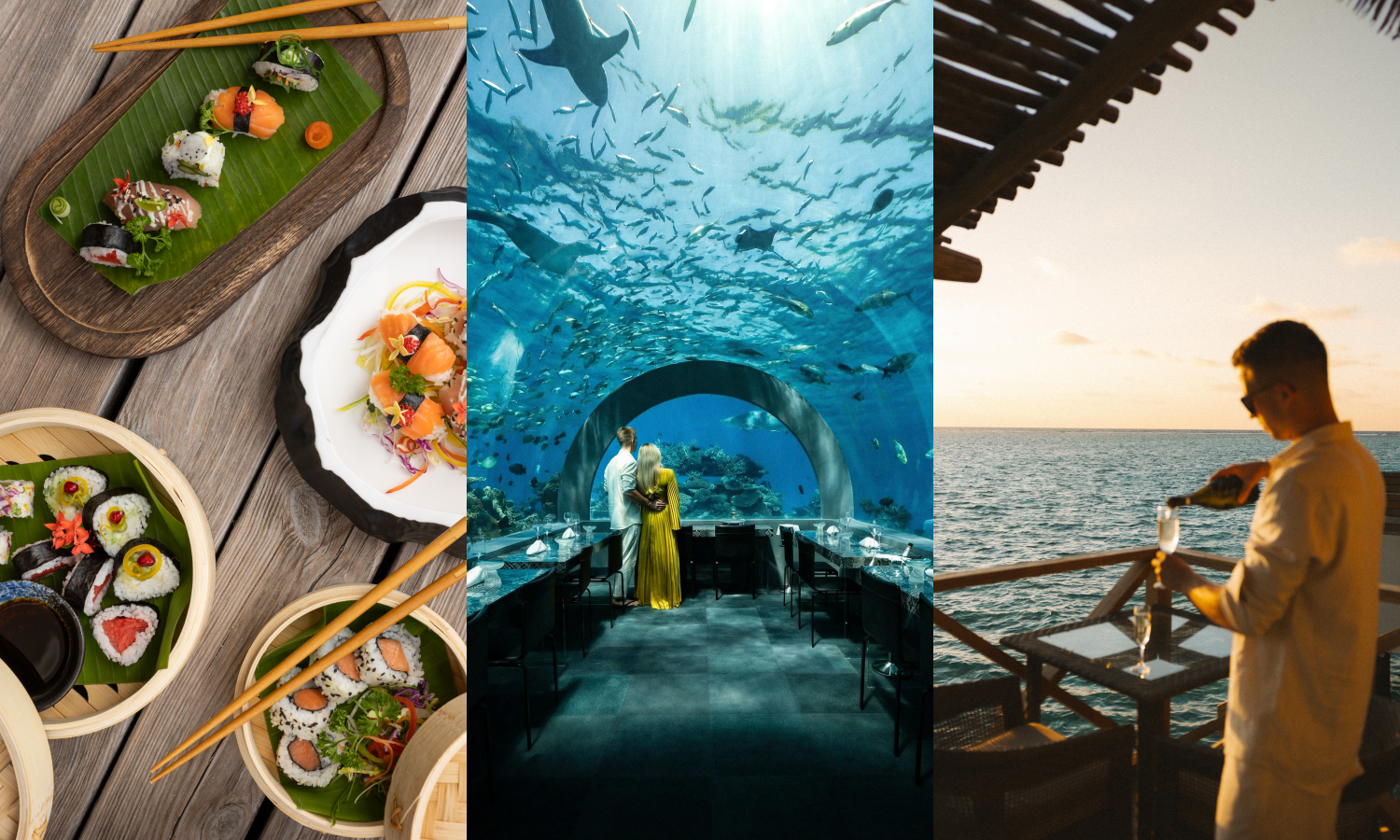
You & Me Maldives, the adults-only luxury retreat under The Cocoon Collection, has announced the launch of its new Premium All Inclusive experience, aimed at enhancing island stays through a more seamless and comprehensive offering in the Indian Ocean.
The Premium All Inclusive experience is designed to begin from the point of arrival. Guests receive complimentary access to The Cocoon Collection Lounge at the seaplane terminal at Velana International Airport, where services are provided to ensure a smooth transition before the journey to the resort.
On arrival at the island, guests are welcomed in their villas with a chilled bottle of sparkling wine and a selection of canapés. The Premium All Inclusive plan includes unlimited premium beverages by the glass, featuring a curated range of wines, signature cocktails, top-shelf spirits, international beers and non-alcoholic options. The in-villa minibar is replenished daily with soft drinks, international beers, red and white wines, as well as assorted snacks. For stays of five nights or more, guests also receive two bottles of premium liquor from a selected list, provided once during the stay.
The experience further includes a range of activities. Guests staying a minimum of three nights are offered one sunset cruise and one snorkelling excursion per stay, while those staying seven nights or more are entitled to a catamaran cruise. Unlimited use of snorkelling equipment and non-motorised water sports, including canoeing, kayaking and paddle boarding, is also included, subject to weather conditions.
Dining forms a central part of the Premium All Inclusive concept. Guests can enjoy three themed dining evenings, including a seafood barbecue under the stars featuring prawns, lobster and oysters. For stays of five nights or more, guests may also take part in a complimentary group cooking class, with a choice between ethnic or Italian cuisine, led by the resort’s culinary team.
Wellness offerings are also incorporated into the programme, with guests able to participate in up to three complimentary sunrise yoga sessions per stay, subject to availability.
The introduction of the Premium All Inclusive experience reflects the resort’s focus on personalised service and carefully curated stays. The offering is positioned to appeal to couples seeking relaxation, romance or activity-led experiences within an adults-only island setting.
Featured
Eid celebrations at SO/ Maldives blend Arabic tradition and Maldivian culture

SO/ Maldives is inviting global travellers this season to reimagine Eid not merely as a holiday, but as an immersive island escape. Located just 15 minutes by speedboat from Malé, the fashion-forward private island retreat sets the stage for a celebration where cultural heritage, contemporary luxury and tropical glamour come together.
At the centre of the festivities is an authentic culinary experience at Hadaba, the resort’s award-winning Arabic restaurant. Guests are offered Levantine flavours, artisanal mezze and traditional recipes presented with a modern approach, creating a setting for shared dining and celebration. As part of the resort’s dine-around concept, Hadaba can be included in a wider culinary journey across the island, allowing guests to experience Arabic cuisine alongside the resort’s other dining venues.
As evening falls, celebrations move to Lazuli Beach Club, where shisha rituals and Arabic-inspired refreshments are served in a beachfront setting. Traditional performances are complemented by Maldivian Boduberu drumming and fire dance displays, creating a cultural programme designed to appeal to international travellers seeking meaningful experiences.
Across the island, Eid is marked through a series of curated activities aimed at encouraging connection and creativity. Cultural workshops, including palm-leaf artistry and henna sessions, offer opportunities to explore heritage, while younger guests are engaged through themed crafts, interactive games and sweet treat decorating. The overall atmosphere remains celebratory while maintaining a relaxed pace that reflects the resort’s character.
Beyond the festive programme, the resort positions the long weekend as a fully immersive island retreat. Guests stay in beach and overwater villas featuring private pools and ocean views, with interiors inspired by high fashion. Time is spent between spa treatments, lagoon activities, beach club experiences and sunset dining, balancing celebration with seclusion.
To mark the season, the resort has introduced two limited-time stay offers. The One Night on Us offer provides savings of 33 per cent on stays of three nights or more, along with daily breakfast, complimentary transfers and spa privileges. The Soo Summer package offers preferential rates combined with spa experiences, curated dining inclusions and additional benefits for water villa stays.
Welcoming travellers from Europe, Asia, the Middle East and beyond, the resort presents Eid as a global celebration where Arabic traditions, Maldivian culture and contemporary design are brought together. This season, guests are invited to exchange routine for island surroundings and experience Eid through a redefined island perspective.
-

 Cooking1 week ago
Cooking1 week agoA spring of flavours: Nowruz dining series at JW Marriott Maldives Resort & Spa
-
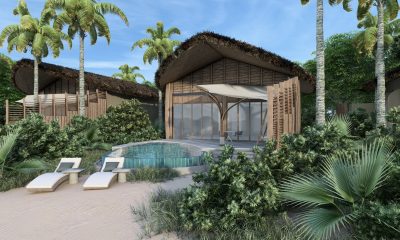
 News1 week ago
News1 week agoPulse Hotels & Resorts unveils Aura Maldives, a mindful luxury sanctuary
-
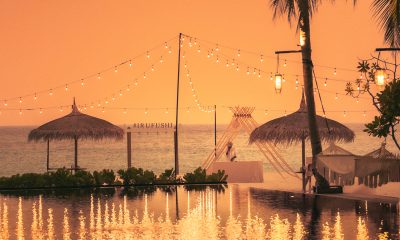
 News1 week ago
News1 week agoSun Siyam Iru Fushi sets new nenchmark with 24 Hour Premium All Inclusive Dine Around
-
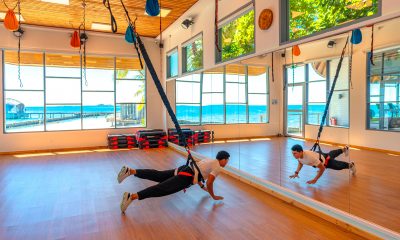
 Fitness1 week ago
Fitness1 week agoOUTRIGGER Maldives Maafushivaru launches expanded wellness programming for 2026
-
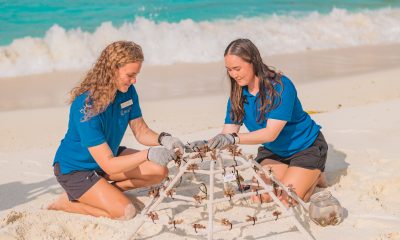
 Action1 week ago
Action1 week agoSheraton Maldives Full Moon celebrates sixth anniversary of Reefscapers collaboration
-
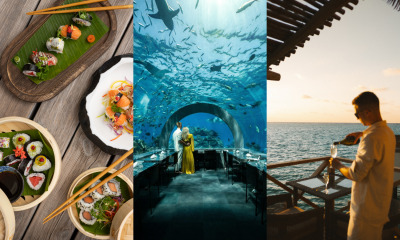
 Featured1 week ago
Featured1 week agoYou & Me Maldives unveils curated Premium All Inclusive programme
-
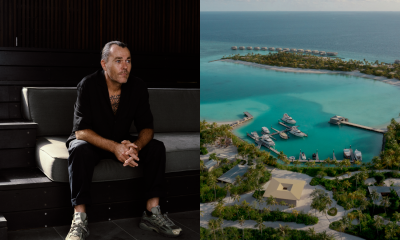
 Cooking1 week ago
Cooking1 week agoPatina Maldives hosts Chef Shannon Bennett for exclusive April residency
-
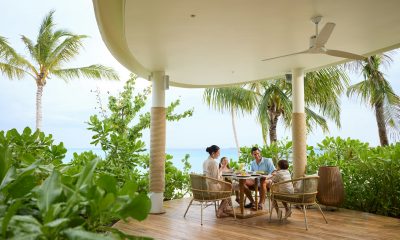
 Awards7 days ago
Awards7 days agoCentara Mirage Lagoon Maldives named Luxury Family Friendly Resort of the Year











